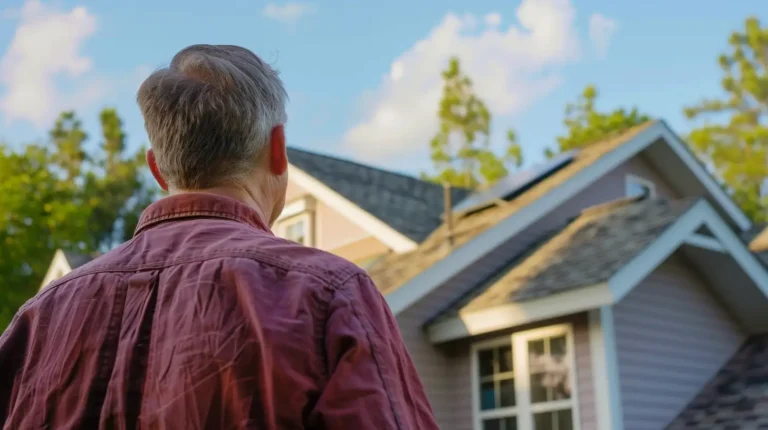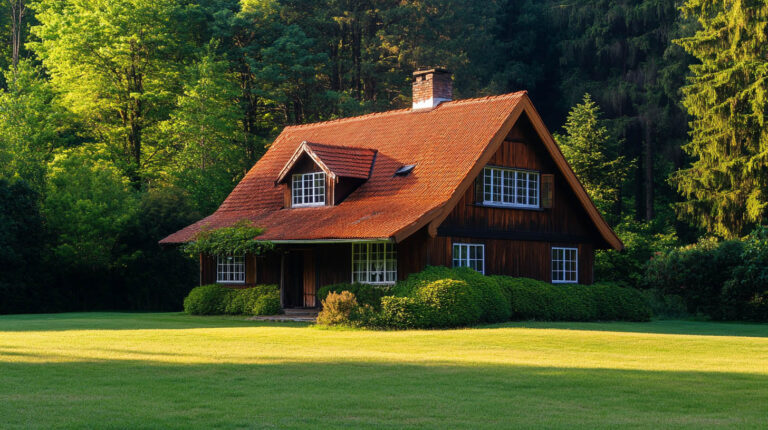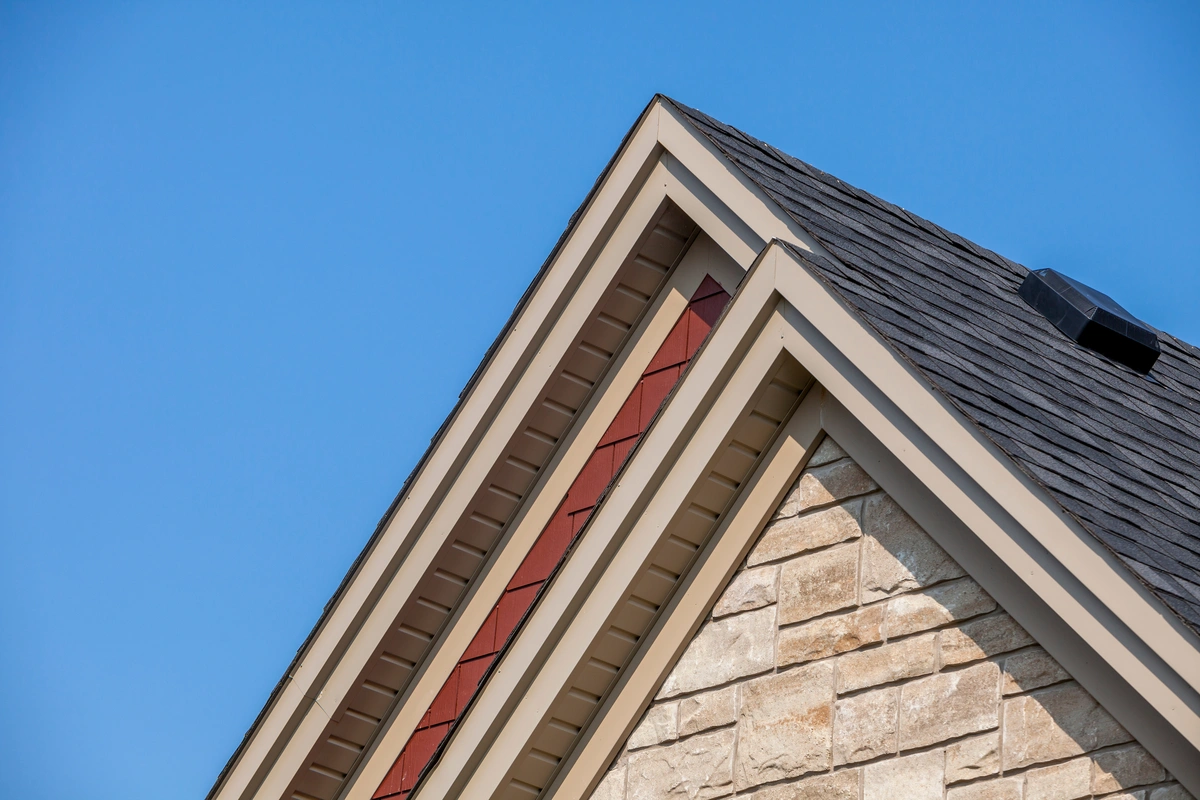
Blog
What Is A Roof Pitch & Why Does It Matter?
Roof pitch may not be the first thing that comes to mind when you think about your home’s roof, but it plays a crucial role in its:
- Durability
- Aesthetics
- Overall performance
Understanding roof pitch is essential whether you’re planning a new construction project, replacing an existing roof, or simply curious about the mechanics of your home. In this comprehensive blog post, we’ll delve into what roof pitch is, how it affects your roof, how to calculate it, why hiring a professional is crucial, how to find the right contractor, and what to expect in terms of costs.
What is Roof Pitch?
Roof pitch refers to the slope or steepness of a roof, typically expressed as a ratio of vertical rise to horizontal run. It determines how effectively water, snow, and debris will drain off the roof’s surface. Roof pitch is usually described in terms of inches per foot or as a fraction, such as 4:12 or 6/12, where the first number represents the vertical rise, and the second number represents the horizontal run.
How Roof Pitch Affects Your Roof
The pitch of your roof has several significant impacts on its functionality and performance:
- Water Drainage: A steeper roof pitch allows for quicker water runoff, reducing the risk of water pooling and leakage. Conversely, a flatter roof pitch may lead to water accumulation, increasing the likelihood of leaks and structural damage over time.
- Snow and Debris Shedding: In regions prone to heavy snowfall or falling debris, a steeper roof pitch helps prevent the buildup of snow and leaves, minimizing the risk of roof collapse or damage.
- Attic Space and Ventilation: The pitch of your roof influences the available attic space and ventilation options. Steeper pitches often provide more usable attic space and better ventilation, which is crucial for maintaining optimal indoor temperature and preventing moisture buildup.
- Aesthetic Appeal: Roof pitch contributes significantly to the overall appearance and architectural style of a building. Different roof pitches suit various architectural styles, from the classic gable roofs with steep pitches to the modern flat or low-slope roofs.
How to Calculate Roof Pitch: 2 Simple Tips
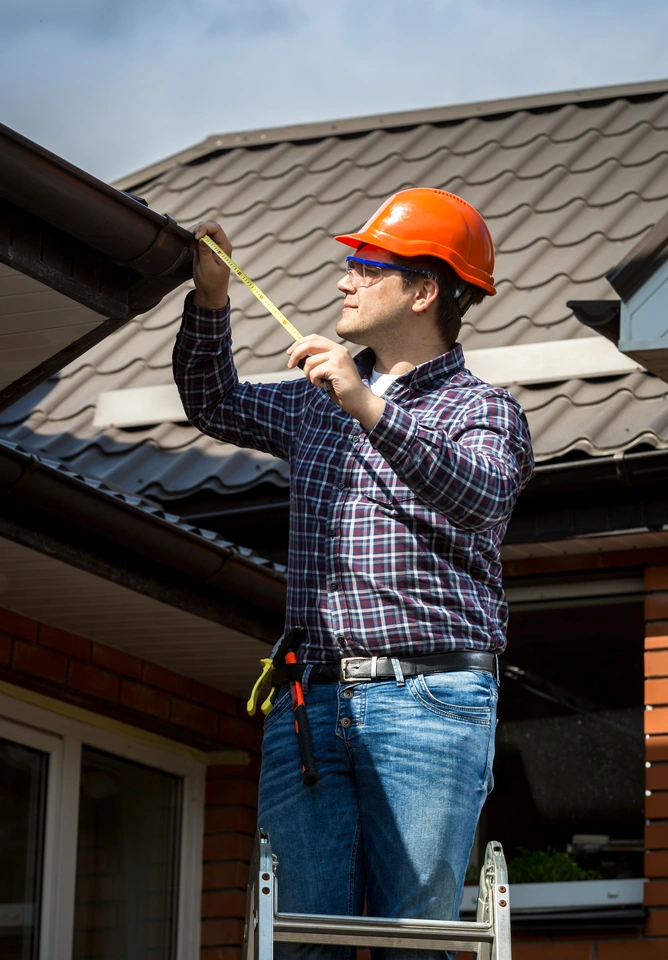
Calculating roof pitch is relatively straightforward and requires basic geometry skills. You can determine the pitch using one of the following methods:
1) Measuring the Slope:
Using a ladder, measuring tape, and a level, measure the vertical rise (height) and horizontal run (length) of the roof section. Divide the vertical rise by the horizontal run to obtain the pitch ratio.
2) Roof Pitch Gauge:
Alternatively, you can use a specialized roof pitch gauge tool to measure the angle of the roof directly. Simply place the gauge on the roof surface and adjust it until the bubble level indicates the correct pitch.
Why You Should Hire a Professional to Measure Your Roof
While measuring roof pitch may seem simple, it’s essential to entrust this task to a qualified professional for several reasons:
- Accuracy: Professional roofers have the expertise and specialized tools needed to accurately measure roof pitch, ensuring precise calculations and reliable results.
- Safety: Working at heights can be dangerous, especially for those without proper training and safety equipment. Professional roofers are trained to work safely and efficiently, minimizing the risk of accidents or injuries.
- Comprehensive Assessment: In addition to measuring roof pitch, professionals can assess other critical factors such as roof condition, material compatibility, and structural integrity, providing valuable insights for your roofing project.
How to Find a Qualified Roofing Contractor
Finding the right roofing contractor is crucial for the success of your project. Here are some tips to help you choose a qualified and reputable contractor:
Research and Recommendations:
Start by researching local roofing companies online and asking for recommendations from friends, family, or neighbors who have recently had roofing work done.
Check Credentials:
Verify that the contractor is licensed, insured, and bonded to perform roofing work in your area. Look for certifications from reputable industry organizations, indicating their commitment to quality and professionalism.
Read Reviews:
Read online reviews and testimonials from previous clients to gauge the contractor’s reputation and customer satisfaction level. Pay attention to any recurring complaints or red flags.
Get Multiple Quotes:
Obtain detailed quotes from several roofing contractors, comparing factors such as pricing, materials, warranties, and project timelines. Avoid choosing solely based on the lowest price, as quality and reliability are paramount.
Communication and Contracts:
Choose a contractor who communicates clearly and transparently throughout the process. Ensure that all terms, expectations, and warranties are documented in a written contract before work begins.
The Cost to Replace Your Roof
The cost of replacing a roof can vary widely depending on various factors, including the size and complexity of the roof, materials used, local labor rates, and any additional work required. On average, homeowners can expect to pay anywhere from $5,000 to $15,000 or more for a standard asphalt shingle roof replacement. However, costs can escalate for larger homes, steep pitches, or premium roofing materials such as metal, tile, or slate.
It’s essential to obtain multiple quotes from reputable contractors and carefully review the breakdown of costs to ensure transparency and avoid unexpected expenses. Keep in mind that investing in high-quality materials and professional installation can provide long-term savings by extending the lifespan of your roof and minimizing the need for repairs.
Learn More about the Pitch of a Roof
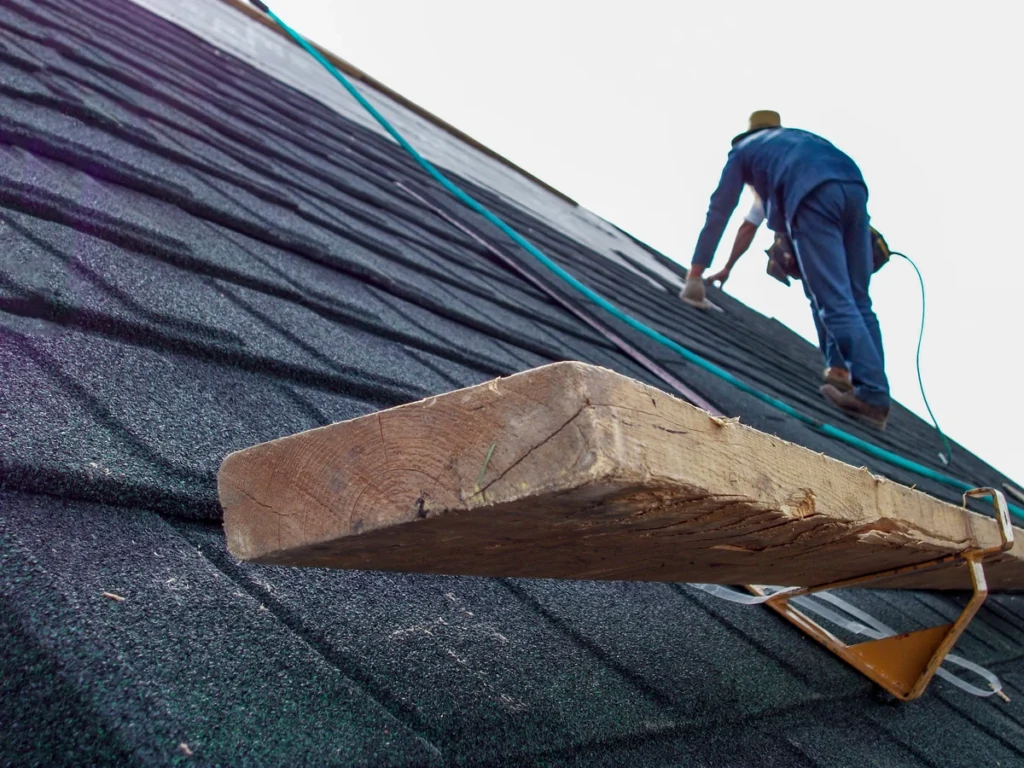
Roof pitch may seem like a minor detail compared to other aspects of home construction, but its significance cannot be overstated. Understanding the role of roof pitch in water drainage, snow shedding, ventilation, and overall roof performance is essential for homeowners and builders alike.When you’re looking to learn about roof slope, don’t leave any room for error! Instead, let the best in the roofing industry help! Contact Avenue Roofing today to get started!
